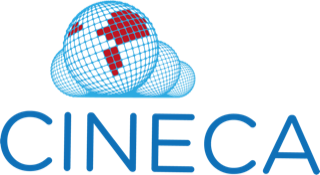Date: Thursday 12 December 2019, 12:30 - 13:30 GMT
Materials: Slides H3ABioNet experiences in phenotype data harmonisation and standards development
Contact: Vera Matser
Overview
H3ABioNet supports the H3Africa Consortium in their research data collection and analysis efforts. This includes both genomic and phenotypic data. With the completion of data collection from some of the projects in H3Africa cycle 1 of funding it become clear midway that some data standardisation/harmonisation would be needed to facilitate meta-analyses of data especially with regards to the clinical data collected by the various studies. H3ABioNet working with the H3Africa Phenotype Harmonisation Working Group have developed an H3Africa Standard CRF which newer studies in cycle 2 of funding having taken up to use for their clinical data collection and we have also supported post data collection harmonisation effort for the H3Africa Cardiovascular Disease Working Group assisting with harmonising data across 6 different studies. We will be talking about experiences in both standards development in Africa and data harmonisation methods used.
About the speaker:
Katherine Johnston is currently co-chair of the H3ABioNet Health Informatics Work Package and H3Africa Phenotype Harmonisation Working Group, focused on data harmonisation efforts and building Phenotype Standards in the African context. She provides support to the H3Africa Consortium studies in phenotype data collection, harmonisation, software platforms and incorporation of ontologies. With a long-standing desire to play a role in advances in genetic research, Katherine moved from a position as Head Clinical Data Manager at AHRI, Durban and joined the Computational Biology Division at UCT, Cape Town as an H3ABioNet Software Developer. She completed an Honours degree in Computer Science and Economics and started her career working in Electronic Health Record systems development. Discovering a passion for helping medical professionals in the field of patient care by building them useful electronic tools she joined CAPRISA as a Clinical Data Manager in 2004 and worked with enjoyment in the field of clinical data management for 13 years. During this time, she married and had three beautiful children, the first of whom has Down Syndrome. As a result, she finds herself unexpectedly combining her interest in genetics, health informatics and patient care with her love for her children, advocating for inclusivity and research advancements in medical care, data collection standards and software development to benefit all genetically diverse people in Africa.
About CINECA:
This webinar introduces the CINECA (Common Infrastructure for National Cohorts in Europe, Canada, and Africa) project, which aims to develop a federated cloud enabled infrastructure to make population scale genomic and biomolecular data accessible across international borders, to accelerate research, and improve the health of individuals across continents. CINECA will leverage international investment in human cohort studies from Europe, Canada, and Africa to deliver a paradigm shift of federated research and clinical applications. The CINECA consortium will create one of the largest cross-continental implementations of human genetic and phenotypic data federation and interoperability with a focus on common (complex) disease, one of the world’s most significant health burdens. CINECA has assembled a virtual cohort of 1.4M individuals from population, longitudinal and disease studies. Federated analyses will deliver new scientific knowledge, harmonisation strategies and the necessary ELSI framework supporting data exchange across legal jurisdictions enabling federated analyses in the cloud. CINECA will provide a template to achieve virtual longitudinal and disease specific cohorts of millions of samples, to advance benefits to patients. It will leverage partner membership of standards and infrastructures like the Global Alliance for Global Health, BBMRI, ELIXIR, and EOSC driving the state of the art in standards development, technical implementation and FAIR data.


